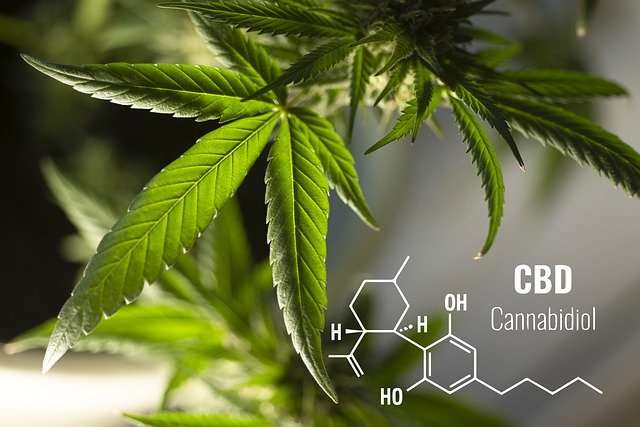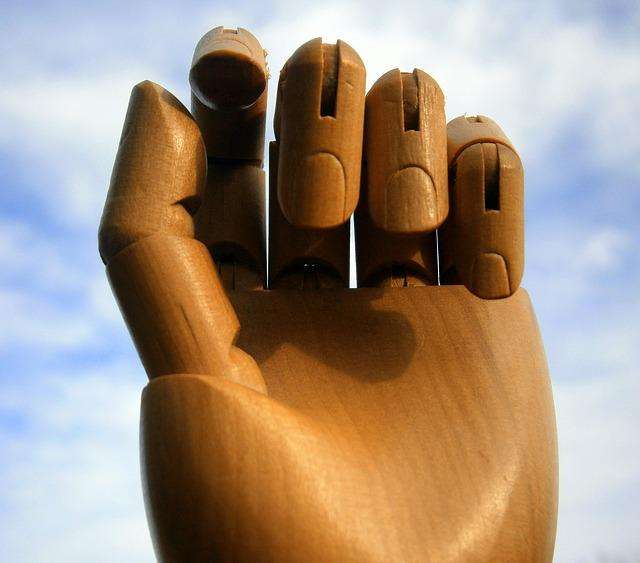Does CBD help against rheumatism?

Is CBD more than a trendy remedy? Recent studies suggest a positive effect in rheumatoid arthritis.
What is CBD?
CBD is currently almost unavoidable. Everywhere a wide variety of CBD products such as CBD OilCBD tinctures, creams and even bath balls are being advertised everywhere. CBD is sold in its various forms online, in drugstores and pharmacies. And it is supposed to help against almost everything. From nervousness and tension to Sleep disorders to pain, many ailments are said to improve with the help of CBD. With such a large presence in the media and advertising, and such a broad spectrum of effects, the suspicion is obvious that CBD is one thing above all: a trendy drug.
Looking at it objectively, CBD is first of all one of hundreds of cannabinoids found in the hemp plant. However, unlike THC - which is also a cannabinoid - CBD has no psychoactive effects. That is, it is not intoxicating. Therefore, the sale of CBD products is also legal in this country, as long as a maximum level of THC content in the product is not exceeded and thus an intoxicating effect can be excluded. This maximum level is 0.2 percent.
Scientifically, there are now actually some positive effects of CBD. For example, CBD products have been shown to reduce epileptic seizures in children. In most cases, traditional therapies achieve remission in epilepsy patients, but in about one-third, standard medications don't work and they continue to suffer disease-related seizures. Researchers from Mattel Children's Hospital found that certain CBD products significantly reduced these seizures in children with the disease. As a result, CBD is now used to treat rare types of epilepsy, some of which are resistant to treatment.
How CBD affects the body
The fact that cannabinoids have an effect on the human organism is associated with the fact that they dock onto special receptors of the human nervous and immune systems. These receptors and their ligands - their binding molecules - together form the endocannabinoid system (ECS). This ECS was first uncovered in the 1990s by research groups in Israel and the United States. The molecular structure of CBD had already been deciphered at that time. However, the fact that this fundamental interaction of cannabinoids and ECS has been discovered does not mean that the exact mechanisms of action are understood. How the cannabinoids and the docking sites work together in detail is the central question of research on CBD.
Incidentally, with regard to pain therapy, research assumes that the effect of cannabinoids builds up gradually. Thus, there is first an improvement in sleep, with subsequent muscle relaxation and finally a reduction in pain.

Mobility decreases, pain increases. Can CBD help with rheumatism?
CBD against rheumatism
What does this mean for the effect of CBD on rheumatic diseases? First of all, it should be noted at this point that rheumatism is in principle a generic term for over 100 different diseases. What they have in common is that they primarily manifest themselves in chronic pain. However, very different areas of the body can be affected. One of the most common forms of rheumatism is rheumatoid arthritis (RA). This is a chronic inflammation of the joints with a gradual onset. Characteristic are the stiff, Painful and swollen joints.. RA is not considered curable and is caused by an attack of the immune system on the patient's own body. Especially with regard to RA, interesting research results have emerged in recent years in connection with CBD.
A 2019 study took an in-depth look at the anti-inflammatory effects of cannabinoids. It found that cannabinoids achieve an anti-inflammatory effect by activating cannabinoid type 2 receptors, which reduce cytokine production and immune cell mobilization. Highlighted was the role of CBD, of which it says, "Moreover, the nonpsychotropic cannabinoid cannabidiol (CBD) showed antiarthritic effects independent of cannabinoid receptors."
In addition to controlling inflammation, according to the research, cannabinoids reduce pain by activating specific receptors as well as CBD-sensitive non-cannabinoid receptor targets.
This means that cannabinoids may be a suitable treatment for rheumatoid arthritis, but it is important to activate the right receptors in the right place. For further clinical trials, the researchers suggest CBD, among others, for inducing cannabinoid receptor-independent anti-inflammatory effects.
Conclusion
The last word on the effect of CBD against rheumatism has not yet been spoken, but positive testimonials from sufferers underscore the research results to date. Further studies would be desirable.
Sources
- L., Dennis: CBD-Öle können Rheuma-Symptome lindern. Forschung und Wissen. 26. März 2021
- Ist es Rheuma? (Deutsche Rheuma-Liga)
- Lowin, Torsten, at all. Cannabidiol (CBD) a killer for inflammatory rheumatoid arthritis synovial fibroblasts. Cell Death Disease 11, article number 714 (2020)
- Lowin, Torsten, et al. Joints for joints: cannabinoids in the treatment of rheumatoid arthritis. Current Opinion in Rheumatology, may 2019 – Volume 31 – Issue 3 – p 271-278 doi: 10.1097/BOR.0000000000000590

Danilo Glisic
Last updated on 06.07.2022
Your personal medication assistant
Browse our extensive database of medications from A-Z, including effects, side effects, and dosage.
All active ingredients with their effects, applications, and side effects, as well as the medications they are contained in.
Symptoms, causes, and treatments for common diseases and injuries.
The presented content does not replace the original package insert of the medication, especially regarding the dosage and effects of individual products. We cannot assume liability for the accuracy of the data, as the data has been partially converted automatically. Always consult a doctor for diagnoses and other health-related questions.
© medikamio